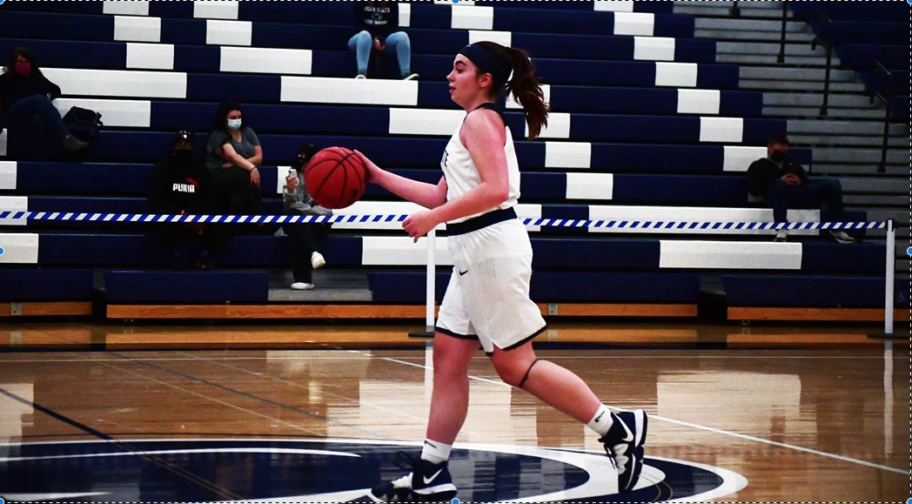This article was written by Samantha Hagenbush, a Robbie’s Hope Ambassador.
Sports are a huge part of people’s lives- both playing and watching. Playing sports takes a lot of skill, courage, ability, and toughness. Athletes are expected to perform at high levels every single time they step on the field or court. There are a lot of pressures and standards that athletes are held to that can cause a lot of stress. A lot of sports fans see athletes as “superhuman” and “tough” and nothing can stop them or bring them down. It is said that athletes are the most mentally tough people. But what about the mental health of athletes too? What happens when athletes do not feel mentally tough? What happens when athletes feel they cannot cope with the stress of their sport?
The phrase “mentally tough” is not and should not be interchangeable with mental health. Unfortunately, a lot of athletes believe that they have to tough out the emotions that they feel and do not seek help when things get bad. They want to uphold the mentally tough status. They do not want to be viewed as weak or lazy. This is especially held true for collegiate and professional athletes.
Speaking of collegiate athletes, let’s discuss an athlete who has been in recent news. Katie Meyer was a soccer goalie for Stanford. Meyer is notably recognized for the two huge saves she made in a penalty shootout versus North Carolina in the 2019 NCAA women’s soccer championship. Meyer also majored in international relations with a minor in history. Stanford is a Division I institution, which means that these athletes train and perform at the highest level. Their schedules consist of team lifts, film watching, 1-2 practices a day, team meals, classes, and more. Their schedules are pretty packed and they do not have time for a lot of other things outside of their sport. Being a goalie is one of the toughest positions to play, especially in a shootout situation like Katie was in at the National Championship. When goals are scored against a goalie in a tough situation, this can evoke a lot of emotion (especially if it is a game-winning goal). It can be difficult to forget those moments. The stress of being a Division I athlete is at an all-time high. On March 1, Katie was found in her dorm room. She had died by suicide. This shocked the sports world and has raised questions as to how accessible is mental health care to student-athletes. This also shows how there is a stigma with athletes receiving mental health care.
As a collegiate athlete myself, I find the stress that sports bring to be overwhelming at times. I have played sports my entire life and while they do bring me joy, the stress that comes along with it is a whole different game. I am a two-sport athlete (basketball and tennis), with one being a sport I have never played before (tennis). I also used to play soccer and I used to dance. Both of my collegiate sports have taken their toll on my mental health at points. Basketball was tough due to having a 6-player team for half of my season and losing games by a lot of points. The feeling of not being able to do enough to help my team and win was mentally taxing. Tennis is also tough because it is a brand new sport that I have never played. It is a huge learning curve and as an athlete who strives for greatness, it is hard being at that level of learning at times. That has made me challenge myself in terms of learning how to cope with the stress of athletics and being flexible in situations like these. I see a therapist currently and one thing we discussed recently was journaling at the end of my day. I tend to let off a lot of steam at the end of the day because I have the time to wind down. Being able to journal what stressed me out during the day, while also finding some positives throughout my day has really helped me get my feelings down somewhere instead of keeping them inside. Being able to care for my mental health has helped me become a better athlete when facing toughness and adversity in the game. All athletes deserve to have that same access to care, as they would for a sprained ankle or broken bone.
Personally, I believe that college and professional athletic programs should have a sports psychologist on staff. I am hoping that one day the NCAA will make that a standard across all divisions. Athletes should be able to feel comfortable going to talk to someone about their feelings without having to worry about being judged or thought of differently. We need to be able to teach that mental health should be prioritized just as much as physical health is. To all athletes, your mental health matters. Please do not wait to seek help in times of need. Please reach out to someone you trust to talk to. You matter, you are cared for, and you are loved. It’s okay to not be okay.





